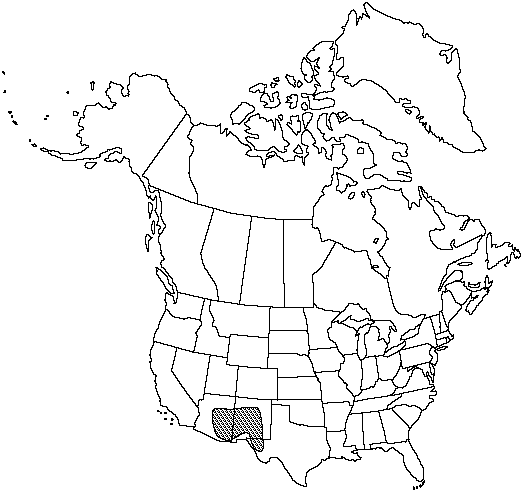Difference between revisions of "Pinus strobiformis"
in Wislizenus,Mem. Tour N. Mexico 102. 1848.
FNA>Volume Importer |
imported>Volume Importer |
||
| Line 65: | Line 65: | ||
|publication year=1848 | |publication year=1848 | ||
|special status= | |special status= | ||
| − | |source xml=https:// | + | |source xml=https://bibilujan@bitbucket.org/aafc-mbb/fna-data-curation.git/src/bb6b7e3a7de7d3b7888a1ad48c7fd8f5c722d8d6/coarse_grained_fna_xml/V2/V2_186.xml |
|genus=Pinus | |genus=Pinus | ||
|species=Pinus strobiformis | |species=Pinus strobiformis | ||
Revision as of 21:10, 27 May 2020
Trees to 30m; trunk to 0.9m diam., slender, straight; crown conic, becoming rounded to irregular. Bark gray, aging red-brown, furrowed, with narrow, irregular, scaly ridges. Branches spreading-ascending; twigs slender, pale red-brown, puberulous or glabrous, sometimes glaucous, aging gray or gray-brown, smooth. Buds ellipsoid, red-brown, ca. 1cm, resinous. Leaves 5 per fascicle, spreading to ascending-upcurved, persisting 3–5 years, 4–9cm × 0.6–1mm, straight, slightly twisted, pliant, dark green to blue-green, abaxial surface without evident stomatal lines, adaxial surfaces conspicuously whitened by narrow stomatal lines, margins sharp, razorlike and entire to finely serrulate, apex narrowly acute to short-subulate; sheath 1.5–2cm, shed early. Pollen cones cylindric, ca. 6–10mm, pale yellow-brown. Seed cones maturing in 2 years, shedding seeds and falling soon thereafter, pendent, symmetric, lance-cylindric before opening, broadly lance-cylindric when open, 15–25cm, creamy brown to light yellow-brown, stalks to 6cm; apophyses somewhat thickened, strongly cross-keeled, tip reflexed; umbo terminal, low. Seeds ovoid; body 10–13mm, red-brown, essentially wingless. 2n =24.
Habitat: Arid to moist summit elevations, montane forests
Elevation: 1900–3000m
Distribution

Ariz., N.Mex., Tex., n Mexico.
Discussion
In the northern part of the range, Pinus strobiformis overlaps P. flexilis and reportedly hybridizes with it. On average P. strobiformis has longer, more slender leaves and thinner, more spreading-tipped apophyses than are found in P. flexilis, and stomatal bands are not evident on the abaxial surface of its leaves.
Selected References
None.